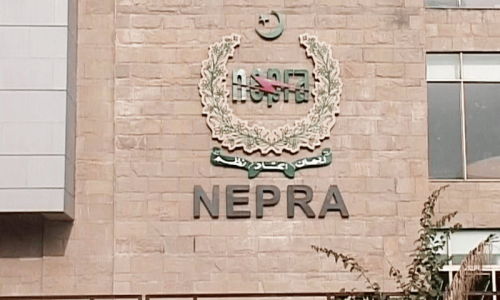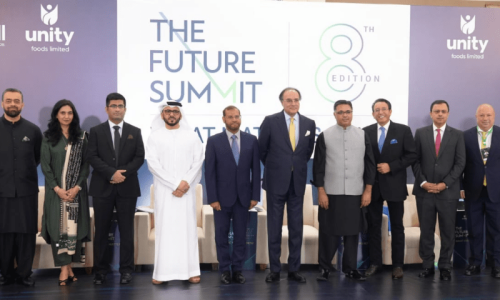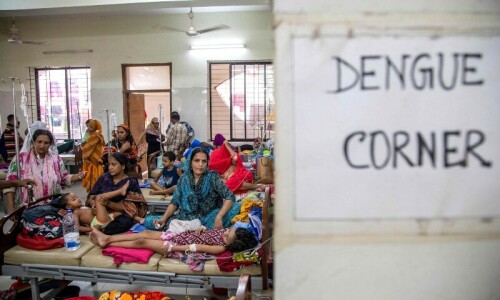Last month, US Treasury Secretary Henry Paulson visited Saudi Arabia for his first official trip to the GCC countries to stress US openness to GCC-based investment as well as highlight the dangers to economic growth from surging oil prices.
With much talk and speculation about the Saudi riyal’s revaluation or de-pegging from the greenback, the visit provided Mr Paulson a first-hand opportunity for an update on the oil-rich Kingdom’s fixed exchange rate.
Interestingly, the secretary’s visit comes on the heels of the US Treasury’s report to Congress on International Economic and Exchange Rate Policies as well as calls by some financial firms on GCC countries to revalue their currencies.
Earlier in April, GCC officials agreed to strengthen their efforts to establish a currency union by 2010, diminishing speculation on a quick change in the dollar pegs. This latest Treasury report highlights rigidities in the GCC currencies, specifically Saudi Arabia, and represents a modest change in focus, which some analysts believe represents a big signal for the GCC currencies.
During his visit, Paulson reiterated the official US stance that currency policy is a sovereign decision and pegs in five GCC countries have served these countries well. He marketed the US as an attractive investment destination for GCC funds, flush with $4 trillion as the region reaps the rewards of oil prices that have doubled in the past year.
According to Bloomberg, financial firms have raised more than $266 billion in the last ten months to offset billions of dollars of losses stemming from the collapse of the US sub-prime market. Sovereign wealth funds have accounted for as much as one-third of this total. As US banks, hurt by sub-prime woes, seek to raise capital, the secretary’s objective was to persuade GCC investors to continue investing in the US economy.
Saudi Arabia generated $240 billion from oil exports last year; for 2008, the Kingdom is expected to earn as much as $300 billion. According to A.T. Kearney, a consulting firm, GCC countries have accumulated $4 trillion due to a surge in oil revenue. The report claims that the region accounted for about half of the $3.3 trillion of sovereign wealth fund assets across the world in 2007.
With global oil prices hovering at $125 per barrel, Saudi Arabia’s short-term economic outlook looks robust. Domestic recycling of the country’s oil windfall through government spending will remain high throughout this year, with rising government subsidies. Real GDP growth is projected to accelerate to 6.5 per cent in 2008 and then to slow down marginally to 5.7 per cent in 2009, from four per cent in 2007.
Rising inflationary pressures have become a major concern in Saudi Arabia as well as many other countries in the region. According to the latest data from SAMA, consumer price inflation in Saudi Arabia reached 9.3 per cent in March, up from 8.7 per cent year-on-year (yoy) in the preceding month, almost tripling the pace of inflation seen a year earlier.
Dollar-pegs in five of the six GCC countries lead their respective central banks to match US interest rate moves. Last year in May, Kuwait de-pegged from the dollar to a basket of currencies; the dinar has since appreciated by some 7.70 per cent against the dollar. Saudi Arabia, Bahrain, Oman, Qatar and the UAE have so far turned down calls for an adjustment to their exchange rates. At a time when the dollar is weakening against major currencies, the peg has reduced purchasing power for goods denominated in other currencies.
Saudi Arabia-based economic experts believe Gulf countries, especially Saudi Arabia, may revalue their currencies against the dollar or peg them to a basket of currencies. The basket could include the dollar, euro, yen and pound sterling. “It’s about time Gulf countries, especially Saudi Arabia, move to a dollar de-peg and head towards a basket of currencies,” said Osama Filali, Economics Professor at King Abdulaziz University.
There is a growing consensus among the media and general public that the solution to the inflation problem lies in breaking the link to the dollar completely or realigning the exchange rate at a higher value. So far, Saudi authorities have resisted rising political pressure for such moves, arguing that the impact of the local currency revaluation on inflation is small.
At a joint press conference with Secretary Paulson, Finance Minister Ibrahim Al-Assaf recently said: “As we have said many times, we have no intention of de-pegging or of revaluation.”
With the severity of inflation and the weakening of the dollar, calls for a revaluation are getting louder. Although adjusting the exchange rate peg would not address the underlying causes of inflation (which are primarily domestic in nature), it would have significant adverse impacts elsewhere in the economy, but is probably the most effective way of reducing inflation in the short-term.
Will there be a de-pegging or a revaluation? This question remains to be answered.














































Dear visitor, the comments section is undergoing an overhaul and will return soon.